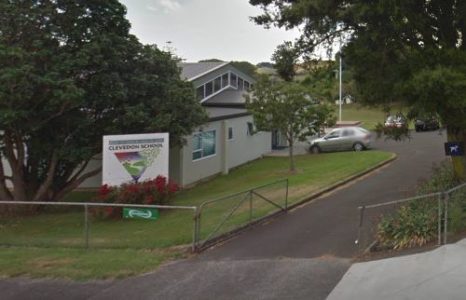
Two local beginner teachers have had their residency application rejected because their starting salary is too low.
Chané and Chris van Tonder, both qualified teachers, arrived from South Africa in March and within three days had started working in two Auckland primary schools.
Chané, 24, who works at Clevedon School, says they are shocked that despite the teacher shortage, they are not yet eligible for residency under the Skilled Migrant category.
“Moving here is not a decision we made lightly. We did it because we want to start a life here, start our family here, buy a house and invest here,” she says.
“And we have every intention of being teachers until the day we retire.”
They are currently on a one year work visa.
Chané says knowing the residency application process could take anywhere from several months to several years, they wanted to start the application process straight away.
They paid more than $500 to send an expression of interest and were excited when their application was selected from the pool.
However within two weeks their application had been declined because they did not earn enough per hour to meet the requirements under the Skilled Migrant category.
Beginner teachers in primary education start on around $47,980 per annum.
Based on a 40 hour week, she says equates to around $23 per hour.
To qualify for residency under the skilled migrant category you need to earn at least $25 per hour, a total of $52,000 per year based on 40 hour working week.
“It feels demeaning to know that we studied four years, packed up our whole lives to come here… and despite the shortage of teachers in this country, we are being told there we do not qualify as skilled workers,” Chané says.
She adds that until they have residency they can’t buy a home, join Kiwisaver, and can’t enrol with a doctor.
Recently she has encountered unexpected health issues and has already forked out hundreds of dollars in doctors’ and specialist non-resident fees.
“You start to feel like ‘why did I come here?’ and you don’t want to feel that way when you have moved your whole life over here,” she says.
Clevedon School, Chané says, has been doing everything it can to help her through the residency process.
After some research she discovered that according to the Novopay salary assessment, teachers are only contracted to work 25 hours per week which brings their hourly pay to around $36 per hour.
However the couple’s immigration case worker advised them that if they were to reapply based on a 25 hour working week, they do not work enough hours to be considered full time.
“Our options are to wait two years until we earn enough to apply for residency,” she says.
“We were under no illusion that we would apply for residency and we would get it straight away, but if we can only start the process in two years time, we are looking at potentially four years before we can start making a life for ourselves here.”
The Minister of Immigration, Iain Lees-Galloway told the Times, “People on temporary work visas can apply to renew their visas when the time comes and work towards gaining enough points under the Skilled Migrant category to eventually apply for residence.
“Points are awarded for several factors including getting a higher skilled job offer, having more experience in the role or gaining more qualifications. Extra points are also awarded for migrants living outside Auckland.”
Lees-Galloway says the government has recently added three teaching roles: early childhood, primary and secondary school teachers, to the new Regional Skill Shortage List, which means there is no need for schools to show they can’t get a local teacher. It’s clear there’s a shortage.
“Many skills shortages are temporary and our needs as a country change over time. That’s why it’s not automatic that a skills shortage visa should lead to residency,” he says.



